2017-2018 Series
September 14, 2017
Jeffrey K. Huang, PhD
Assistant Professor, Department of Biology
Georgetown University Medical Center
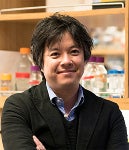
Dr. Jeffrey Huang’s research aims to understand the mechanisms of CNS glia-neuron interaction in development, homeostasis, and regeneration, with the goal to devise regenerative and neuroprotective therapies for brain pathologies that occur with aging, injury and disease. He focuses on the biology and pathology oligodendrocytes, which are glial cells that synthesize myelin membranes around CNS axons to enable rapid, saltatory conduction. Myelin destruction and oligodendrocyte loss such as in multiple sclerosis (MS) impairs axonal function and promotes axonal degeneration. He is investigating how oligodendrocyte-axon interactions influence axonal integrity and survival. Dr. Huang also investages how oligodendrocytes differentiate from progenitors under the inflammatory environment to regenerate myelin (remyelination) after demyelinating injury. He uses primary oligodendrocyte cultures, transgenic mice, and models of experimental CNS demyelination, combined with molecular biology and imaging tools to address these questions.
Find out more information on Dr. Huang’s lab.
November 9, 2017
Michael M. Shen, PhD
Columbia University Medical Center
Herbert Irving Comprehensive Cancer Center

Dr. Michael Shen’s laboratory investigates the regulation of pattern formation and organogenesis during vertebrate development, and how these processes are disrupted in cancer initiation and progression. These studies primarily utilize experimental approaches involving genetically-engineered mice, but also employ cell culture and biochemical approaches to investigate molecular mechanisms. In the first major area of interest in our laboratory, our laboratory is investigating the biological functions of Nodal, a member of the Transforming Growth Factor-beta (TGFβ) family that is essential for multiple critical processes during formation of the vertebrate body plan, including anterior-posterior and left-right axis specification, as well as formation of the germ layers during gastrulation. In a second primary area of research, our laboratory is investigating the molecular mechanisms of tissue organogenesis and their relationship to tumor initiation and progression, through the generation and analysis of mouse models of prostate cancer.
Find out more information on Dr. Shen’s lab.
December 6, 2017
Valerie Horsley, PhD
Associate professor, Molecular, Cellular, and Developmental Biology
Associate Professor of Dermatology
Yale University
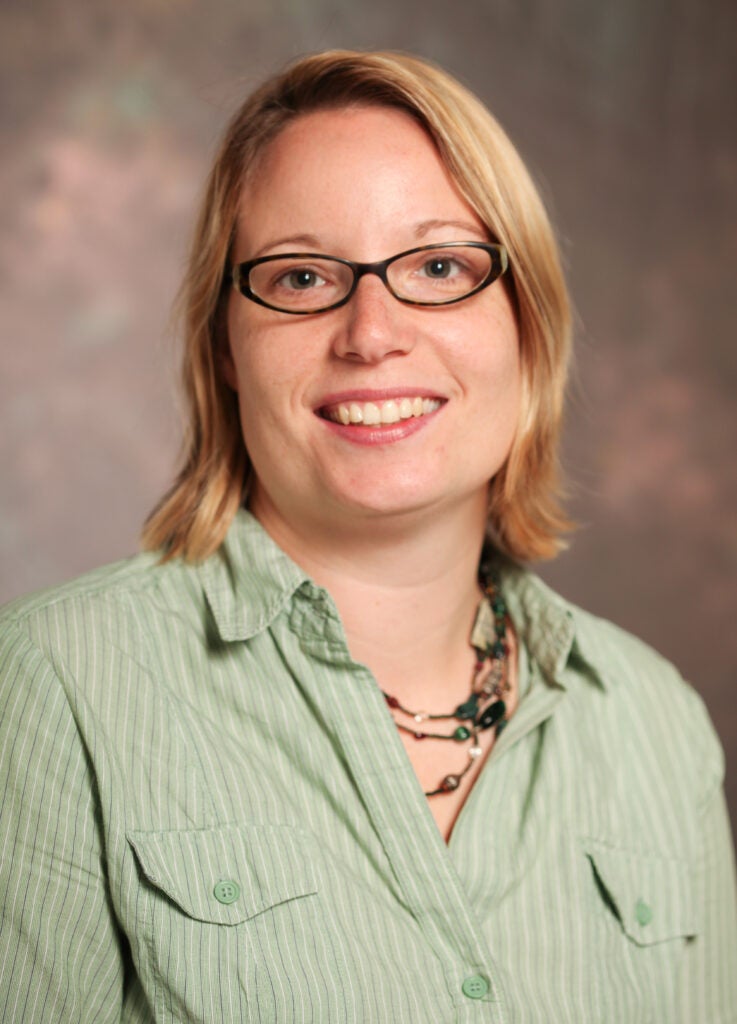
Valerie Horsley began her scientific training as an undergraduate at Furman University and was awarded her Ph.D. from Emory University. After completing a Damon Runyon Cancer Research Foundation postdoctoral fellowship in Elaine Fuchs’ laboratory at Rockefeller University, Valerie started her independent laboratory at Yale University in the Department of Molecular Cellular and Developmental Biology. Horsley’s lab uses the mouse as a genetic model system to study how adult stem cells within epithelial tissues maintain tissue homeostasis, can contribute to wound healing, and can be a factor in cancer formation. She is now the Maxine F. Singer Associate Professor of Molecular, Cellular, and Developmental Biology at Yale, has received a number of awards including the Pew Scholar Award, Presidential Early Career Award for Scientists and Engineers, and the Rosalind Franklin Young Investigator Award.
Find out more information on Dr. Horsley’s lab.
January 18, 2018
Christopher Lengner, PhD
Assistant Professor, Department of Biomedical Sciences
School of Veterinary Medicine
University of Pennsylvania
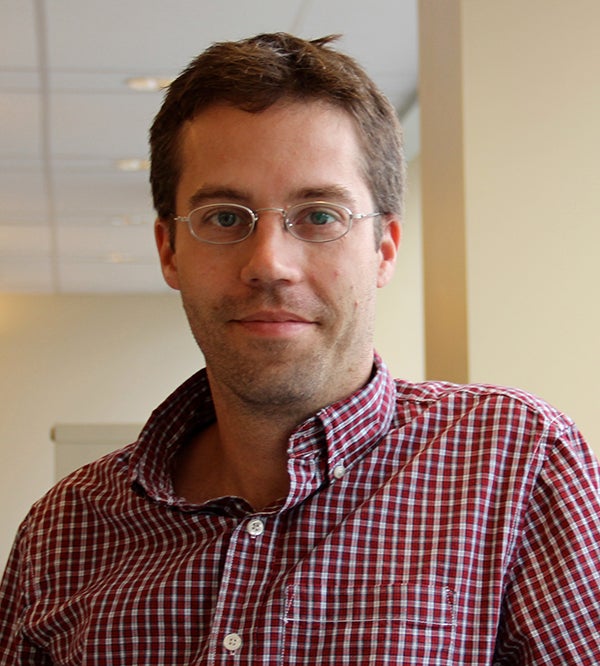
Dr. Lengner’s overarching goal for his research program is to gain an understanding of the molecular mechanisms that govern stem cell potency and how dysregulation of these mechanisms can contribute to disease onset and progression, including oncogenesis. His laboratory employs genetic, genomic, and single-cell analysis approaches in murine systems to address these fundamental questions, and, in parallel, utilizes human induced pluripotent cells and patient samples to translate findings into human systems. Using these approaches his lab has identified novel pathways underlying the somatic stem cell self-renewal and the ontogeny of hematopoietic and gastrointestinal cancers. These pathways are subsequently being assessed as potential points for therapeutic intervention in cancers and diseases of regenerative failure. They have also begun to unravel the hierarchical structure of the intestinal stem cell compartment with the ultimate goal of understanding how perturbations in this hierarchy contribute to disease states, including cancer, chronic inflammation, and regeneration in response to acute injuries such as ischemia or radiation damage.
Find out more information on Dr. Lengner.
February 15, 2018
Sunny Wong, PhD
Assistant Professor, Department of Dermatology
Assistant Professor, Department of Cell and Developmental Biology
University of Michigan Medical School

Sunny Wong joined the University of Michigan in December 2011 as an Assistant Professor in the Department of Dermatology, with a secondary appointment in the Department of Cell and Developmental Biology. He conducted his graduate research in the lab of Richard Hynes at the Massachusetts Institute of Technology and received his Ph.D. in 2007. Subsequently he trained with Jeremy Reiter as an American Cancer Society / A.P. Giannini postdoctoral fellow at the University of California San Francisco. His lab’s general interests involve understanding how hair follicles develop and how basal cell carcinoma arises in the skin. In terms of development, they are specifically focused on the biology of the hair follicle infundibulum, a poorly characterized domain that constitutes the hair follicle opening, or the pores visible on the surface of the skin. They are interested in the cellular events that generate this opening, the genes that maintain its normal function, as well as events associated with hair canal disruption, which occurs in acne patients. They are interested in studying the stem cells in the skin which give rise to basal cell carcinoma, as well as their interactions with neighboring stomal cells. They are also currently investigating how these tumors regress in response to therapy, as well as how they potentially develop drug resistance.
Find out more information on Dr. Wong
April 19, 2018
Peggy Myung, MD, PhD
Assistant Professor of Dermatology and Pathology
Yale University
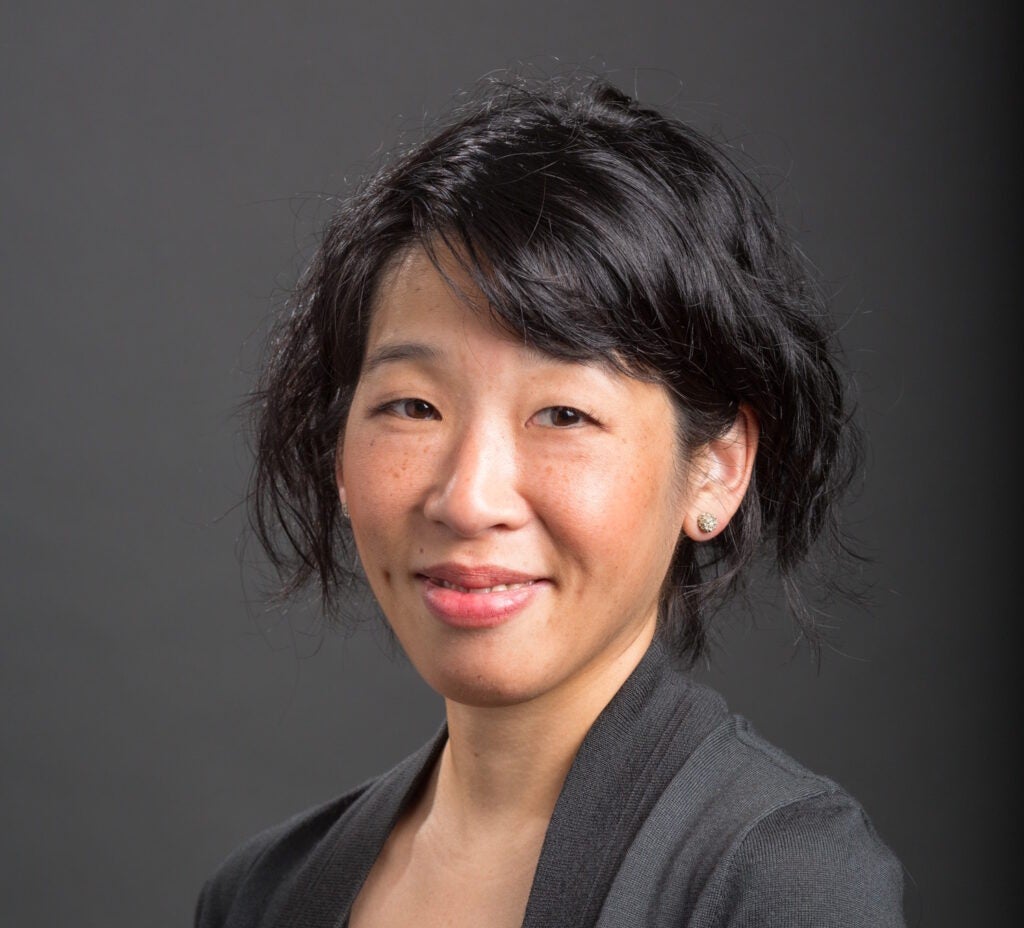
Dr. Peggy Myung is interested in hair follicle development and regeneration. Currently, she studies hair follicle development in mice and has a focus on how the dermal niche regulates hair follicle cell fate decisions. In particular, her work is centered on understanding the epithelial-mesenchymal interactions that regulate epithelial growth and differentiation in an effort to re-purpose these same molecular mechanisms to suppress aberrant growth in carcinogenesis.
Find out more information on Dr. Myung.
May 17, 2018
Jonathan Pollack, MD, PhD
Professor of Pathology
Stanford University School of Medicine
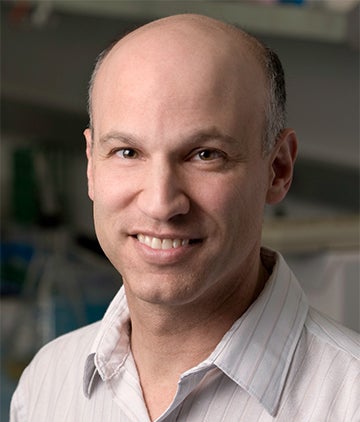
The Pollack lab uses genomic approaches to investigate the pathobiology of human cancer, and to identify strategies for improved diagnosis, prognostication and treatment. Technologies include deep sequencing (exomes, genomes, transcriptomes, and cistromes), DNA microarrays, RNAi screens, genome editing, and single-cell analysis. Studies span several tumor types, including prostate, breast, lung, colon and pancreatic cancer. Rather than study model organisms, we work directly with human cancer specimens and patient-derived cells. Active areas of investigation include: (1) Defining prostate cancer subtypes, intratumor heterogeneity and genome evolution, to distinguish indolent from aggressive disease; (2) Discovering clinically-relevant gene-expression signatures and cancer biomarkers; (3) Identifying recurring genomic structural alterations in various cancer types, to discover novel cancer genes; (4) Understanding the role of altered chromatin remodeling and amplified “lineage-survival” transcription factors in tumorigenesis; (5) Investigating the mechanisms underlying genomic instability and the shaping of cancer genomes; (6) Applying genomic approaches to study uncommon neoplasias, as well as benign disease processes; (7) Generating patient-derived cell culture models by conditional reprogramming, to enable studies of specific cancer genotypes; (8) Exploring cell and tissue heterogeneity through single-cell genomics.
Find out more information on Dr. Pollack’s lab.
Special Seminar!
In collaboration with the Innovation Center for Biomedical Informatics
June 14, 2018
Charles A. Gersbach, PhD
Rooney Family Associate Professor of Biomedical Engineering
Duke University

Dr. Charles A. Gersbach is the Rooney Family Associate Professor at Duke University in the Departments of Biomedical Engineering and Orthopedic Surgery, an Investigator in the Duke Center for Genomic and Computational Biology, and Director of the Duke Center for Biomolecular and Tissue Engineering. His research interests are in genome and epigenome editing, gene therapy, regenerative medicine, biomolecular and cellular engineering, synthetic biology, and genomics. Dr. Gersbach’s work has been recognized through awards including the NIH Director’s New Innovator Award, the NSF CAREER Award, the Outstanding New Investigator Award from the American Society of Gene and Cell Therapy, the Allen Distinguished Investigator award, and induction as a Fellow of the American Institute for Medical and Biological Engineering.
